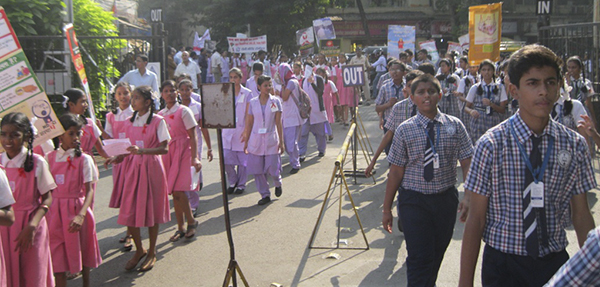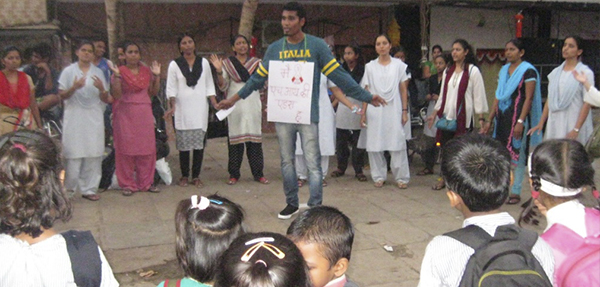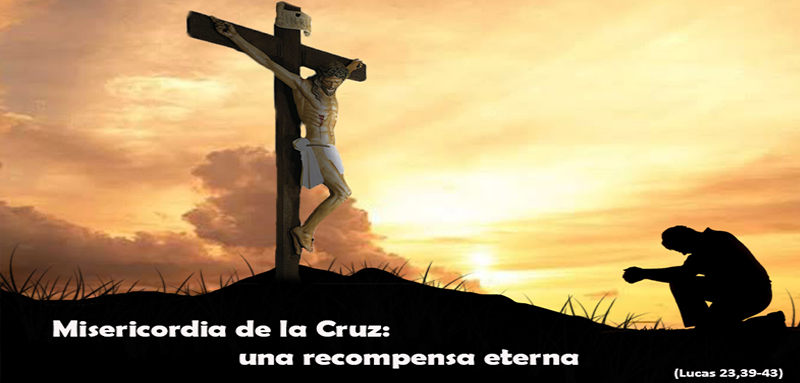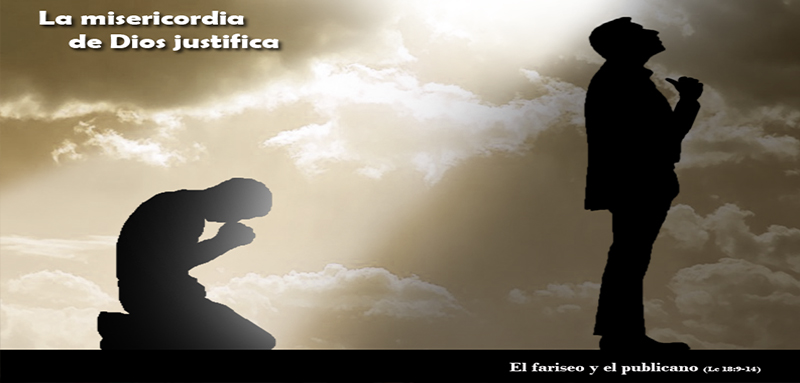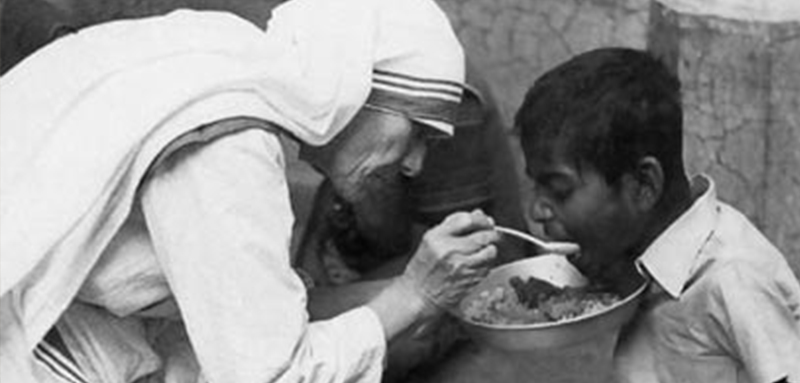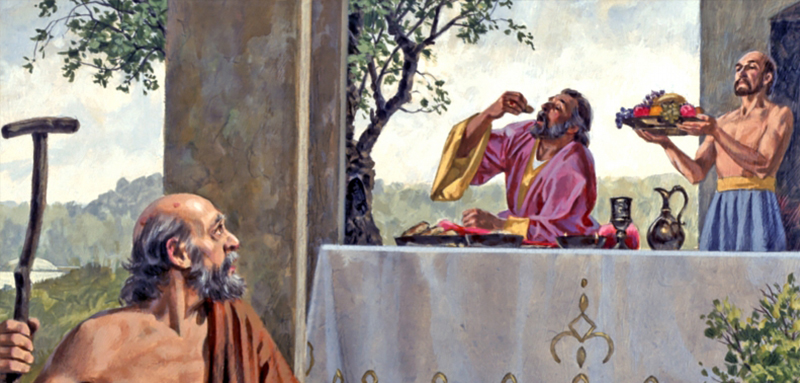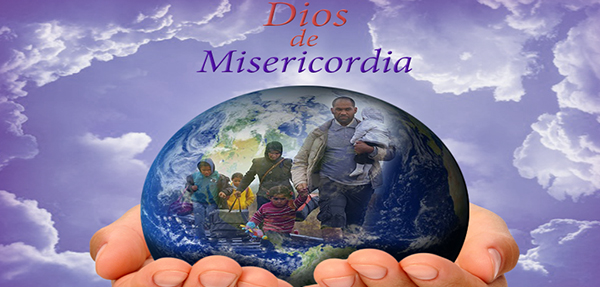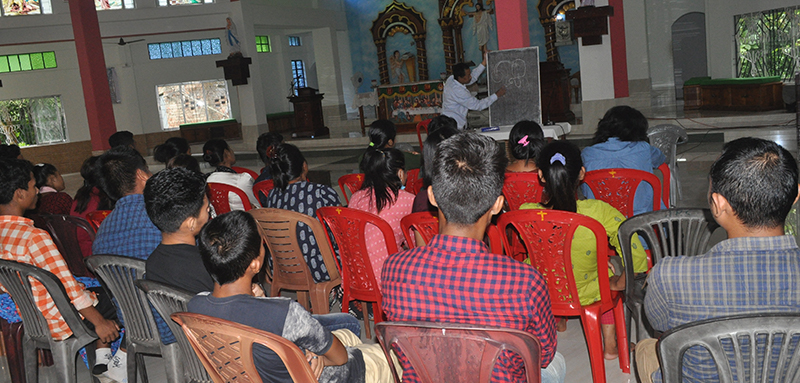World AIDS day was celebrated with a mega rally organized by Sarva Seva Sangh (Mumbai), Holy Spirit Hospital and Mahakali Caves Road ALM on Tuesday, 1st December 2015.
The rally on the theme ‘Fighting for the healthiest generation’ began at 9.30 am from Gyan Ashram gate, Mahakali Caves Road and Holy Spirit Hospital Gate moved on two directions passing through, Shere-e Punjab, Pump House, Malpa Dongri, Mahakali Caves Road, Thakshila, Bindra coplex and concluded at Holy Spirit Hospital, Andheri (E). The students from St. Arnold School, Satya Sai Vidya Mandir, Canossa School and Holy Spirit Nursing School participated in large numbers.
At the concluding venue the Nursing students of Holy Spirit hospital presented a role play on HIV/AIDS and police inspector Mr. Jhadhav from MIDC police station addressed the gathering. Nearly 600 people including students participated in the rally which was concluded at 11.30 am at Holy Spirit Hospital.
Later in the evening Sarva Seva Sangh put up street play titled ‘Jeevan Ki Adhoori Kahani’ with B.Ed students from St. Theresa’s B.Ed College, Santracruz (W) in various slum communities at Mahakali Caves Road and Subhash Nagar. More Street plays will be staged on Wednesday evening at Malpa Dongri, Pump House area.
Mathew Korattiyil

